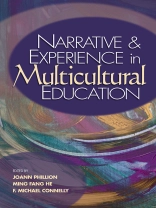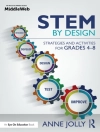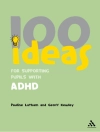‘Narrative and Experience in Multicultural Education provides compelling stories that raise questions, advance understandings, and promote insight into the challenges and hopes of teaching for diversity and democracy. The works contained are compelling for the stories they tell and, as such, there is value in their presence. That the thoughtful reader can glean important lessons with respect to multicultural education and the value of narrative inquiry as academic disciplines is intellectual ′icing-on-the-cake.′’
—Francisco Rios, University of Wyoming
‘This work is a very exciting, important, and badly needed piece of scholarship offered by some of the most leading-edge professors in the field. The diversity and diverse viewpoints it presents are unparalleled in the field of education.’
—Cheryl J. Craig, University of Houston
‘The narratives in this book allow readers to put a human face to an issue related to multicultural education. A reflective reader will begin to see himself/herself in the narratives of the text.’
—Edmundo F. Litton, Loyola Marymount University
‘The inclusion of chapters that deal with classroom realities elevate the text for education teacher candidates above those existing volumes that tend to deal with multi/inter-cultural issues in the abstract. One of the strengths of this volume is that it will resonate with new and experienced classroom practitioners.’
—Jon G. Bradley, Mc Gill University
Narrative and Experience in Multicultural Education explores the untapped potential that narrative and experiential approaches have for understanding multicultural issues in education. The research featured in the book reflects an exciting new way of thinking about human experience. The studies focus on the lives of students, teachers, parents, and communities, highlighting experiences seldom discussed in the literature. The authors are diverse and their inquiries are far ranging in terms of content, ethnic groups studied, and geographic locations. They also bring their personal experience to the inquiries, actively participate in the lives of the people with whom they work, care deeply about the concerns of their participants, and search for ways to act upon these concerns. Most importantly, the work emphasizes the understanding of experience and transforming this understanding into social and educational significance.
Key Features
• Addresses new ways to explore multicultural issues in education; rather than relying on theoretical generalizations, the book focuses explicitly on individual and group experiences
• Emphasizes the transformation of experience into education, especially through the study of complex multicultural issues
• Challenges readers′ assumptions of multicultural issues by offering numerous narrative accounts and research studies for work with various ethnic groups
Narrative and Experience in Multicultural Education is designed for use in courses in multicultural education and qualitative research, especially in departments of education, anthropology, and sociology. Professional educators, researchers, and consultants will also find this a valuable introduction to narrative research and a welcome addition to the literature.
Table des matières
Preface – Jo Ann Phillion, Ming Fang He and F. Michael Connelly
Chapter 1: The Potential of Narrative and Experiential Approaches in Multicultural Inquiries – Jo Ann Phillion, Ming Fang He and F. Michael Connelly
Unit One: Personal Narrative, Community Narrative and the African American Experience
Chapter 2: Examining School-Community Connections Through Stories – Saundra Murray Nettles
Chapter 3: Black Women Writing Autobiography: Autobiography in Multicultural Education – Meta Y. Harris
Unit Two: Latina/Latino Communities, Families, and Children
Chapter 4: Being Educated in the Absence of Multiculturalism – Alma Rubal-Lopez and Angela Anselmo
Chapter 5: Between the Telling and the Told: Latina Mothers Negotiate Education in New Borderlands – Sofia A. Villenas
Unit Three: Social Justice, Equality and the Education of Native Americans
Chapter 6: White Teachers, Native Students: Rethinking Culture-Based Education – Mary Hermes
Chapter 7: Journey Toward Social Justice: Curriculum Change and Educational Equity in a Navajo Community – Donna Deyhle
Unit Four: Multicultural Teacher Education in International Contexts
Chapter 8: Teachers as Transformative Healers: Struggles With the Complexities of the Democratic Sphere – Lourdes Diaz Soto
Chapter 9: How is Education Possible When There′s a Body in the Middle of the Room? – Freema Elbaz-Luwisch
Chapter 10: Multicultural Perspectives in Teacher Development – Grace Feuerverger
Unit Five: Narrative Inquiry in Multicultural Education
Chapter 11: The World in My Text: A Quest for Pluralism – Carola Conle
Chapter 12: The Art of Narrative Inquiry: Embracing Emotion and Seeing Transformation – Chris Liska Carger
Unit Six: Democracy, School Life, and Community in Multicultural Societies
Chapter 13: Narrative Inquiry Into Multicultural Life in an Inner-City Community School – F. Michael Connelly, Jo Ann Phillion, and Ming Fang He
Chapter 14: Creating Communities of Cultural Imagination: Negotiating a Curriculum of Diversity – Janice Huber, M. Shaun Murphy, and D. Jean Clandinin
Chapter 15: Narrative and Experiential Approaches to Multiculturalism in Education: Democracy and Education – Ming Fang He, Jo Ann Phillion, and F. Michael Connelly
Index
About the Editors
About the Contributors
A propos de l’auteur
F. Michael Connelly is Professor Emeritus, and formerly Director, Centre for Teacher Development, and Chair, Department of Curriculum, Ontario Institute for Studies in Education/University of Toronto (OISE/UT). He is Director of a Hong Kong Institute of Education/OISE/UT Doctoral Program, and a founder and editor of Curriculum Inquiry. Professor Connelly was the recipient of the 1987 Outstanding Canadian Curriculum Scholar Award of the Canadian Society for the Study of Education, the 1991 Canadian Education Association Whitworth Award for Educational Research, the 1995 Ontario Confederation of University Faculty Associations Outstanding Teaching Award, and the 1999 Lifetime Achievement Award in Curriculum Studies from the American Educational Research Association. He has written widely, with his collaborator Jean Clandinin, in science education, teaching and teacher knowledge, curriculum and narrative inquiry.












